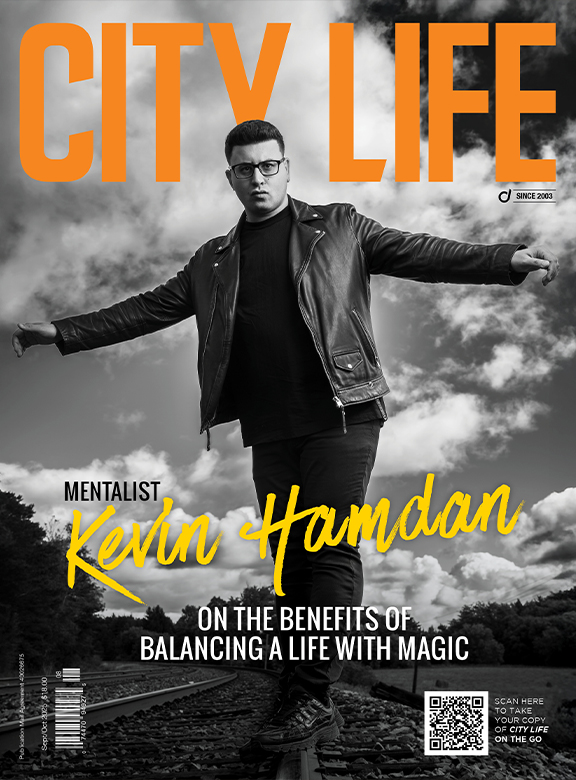PsychTests’: New Study Indicates That Verbal Abuse Is More Damaging Than Physical Abuse
Psychological abuse can create a synergistic effect when a victim suffers more than one form of maltreatment.
As the stigma surrounding discussions about abuse slowly but surely lessens, as the prevalence of abuse is becoming evident, as is its impact on the psychological, emotional, and physical well-being of the victims. Research has shown that children who are mistreated can suffer from a host of potentially long-term difficulties, including learning disabilities, underdeveloped social skills, depression, anxiety, and other mental health issues, as well as the potential to become abusers themselves. Yet, this doesn’t mean that victims of trauma cannot thrive. Eleanor Roosevelt, George Orwell and Ludwig van Beethoven are just a few examples of individuals who suffered abuse as children and still flourished in spite of it. A recent study conducted by Psychtests.com indicates that while victims of abuse will often struggle with after-effects, the indomitability of the human spirit can never be counted out.
Analyzing data collected from 1,456 people who took the Hardiness Test, PsychTests’ researchers compared people who have never been abused in any way to those who have experienced verbal abuse, physical abuse, sexual abuse, verbal and physical abuse, verbal and sexual abuse, and those who have experienced all three (the physical-plus- sexual-abuse group was not included in the analysis due to its small sample size).
Here’s what their study revealed:
EMOTIONAL AND MENTAL HEALTH ISSUES
▶ A tendency to make impulsive decisions was significantly increased in people who experienced sexual abuse (29% of the sexual abuse group are impulsive), but this inclination is exacerbated when physical and verbal abuse are added to the mix (41% of the verbal-plus-physical-plus-sexual abuse combo group are impulsive).
▶ A tendency to get angry easily was much more pronounced in groups of people who experienced verbal abuse (28% are short-tempered) or sexual abuse (27% are short-tempered). However, the effect becomes cumulative for those who experienced both verbal and sexual abuse (30% are short- tempered) or verbal-plus-sexual-plus- physical abuse (33%).
▶ In comparison to the non-abused group, the probability of being diagnosed with an anxiety disorder doubled with verbal or physical abuse (11% in non- abused group vs. 21% in both abuse groups), and tripled with sexual abuse (31%). Of those who experienced all three forms of abuse, 53% have been diagnosed with anxiety issues.
▶ 46% of people who experienced a combination of verbal, physical, and sexual abuse have been diagnosed with a mood disorder (e.g., depression, bipolar). It appears that any form of abuse on its own doubles or triples the risk.
▶ Sexual abuse significantly increased risk for suicidal thoughts — an incredible 44% of survivors felt suicidal in the past year. Verbally abused people had double the risk compared to the control group (32% vs. 16%). Physical abuse had an impact on suicidal ideation only in synergy with verbal abuse (27% of the verbal-plus-physical-abuse group were suicidal in the last year).
“All types of abuse create deep trauma in those on the receiving end,” says Dr. Ilona Jerabek, president of PsychTests. “There is also a fascinating and perhaps a bit surprising finding that shows up clearly and consistently in our study: that hitting someone with vicious words causes as much damage than hitting them physically, if not more so.”
“If there are people reading this who have suffered abuse and are struggling with the after-effects, I want them to know that they are not alone and that healing, as difficult a journey that may be, is possible.”
— Dr. Jerabek
And yet, each group of abuse survivors showed clear signs of resilience, perseverance, and a desire to move on and heal. For example:
ASSERTIVELY STAND UP FOR THEMSELVES:
- 64% of the verbal-abuse group
- 71% of the physical-abuse group
- 49% of the sexual-abuse group
- 73% of verbal-plus-physical-abuse group
- 63% of the verbal-plus-sexual-abuse group
- 69% of the verbal-plus-physical-plus- sexual-abuse group
- 68% of the non-abused group
FACE PROBLEMS RATHER THAN TRYING TO IGNORE THEM:
- 60% of the verbal-abuse group
- 50% of the physical-abuse group
- 58% of the sexual-abuse group
- 66% of verbal-plus-physical-abuse group
- 67% of the verbal-plus-sexual-abuse group
- 68% of the verbal-plus-physical-plus- sexual-abuse group
- 63% of the non-abused group
TAKE RESPONSIBILITY FOR THEIR ACTIONS:
- 80% of the verbal-abuse group
- 86% of the physical-abuse group
- 91% of the sexual-abuse group
- 87% of verbal-plus-physical-abuse group
- 87% of the verbal-plus-sexual-abuse group
- 84% of the verbal-plus-physical-plus- sexual-abuse group
- 84% of the non-abused group
PUSH THEMSELVES TO OVERCOME THEIR FEARS:
- 46% of the verbal-abuse group
- 43% of the physical-abuse group
- 47% of the sexual-abuse group
- 60% of verbal-plus-physical-abuse group
- 46% of the verbal-plus-sexual-abuse group
- 57% of the verbal-plus-physical-plus- sexual-abuse group
- 54% of the non-abused group
HAVE SEEN A THERAPIST IN THE LAST TWO YEARS OR WOULD LIKE TO START THERAPY:
- 57% of the verbal-abuse group
- 50% of the physical-abuse group
- 67% of the sexual-abuse group
- 66% of verbal-plus-physical-abuse group
- 74% of the verbal-plus-sexual-abuse group
- 77% of the verbal-plus-physical-plus- sexual-abuse group
- 45% of the non-abused group
“If there are people reading this who have suffered abuse and are struggling with the after-effects, I want them to know that they are not alone and that healing, as difficult a journey that may be, is possible.And if they’re thinking,‘Well, I don’t have the strength that the people in your study did,’ I would beg to differ,” states Dr. Jerabek. “Of course, there are likely to be some lingering effects when one has been abused; many people in our sample still sometimes struggle to manage their emotions and to cope with stress. Yet in spite of their trauma, a lot of people in the abused groups display an incredibly strong resolve to heal and find happiness.”
Looking on the bright side, abuse survivors also use several strategies to boost their inner strength, encourage themselves, and maintain a healthy mindset, including:
- Practicing gratitude
- Looking for the silver lining in negative situations
- Viewing hardship as an opportunity for growth
- Reminding themselves that they deserve love, respect, and happiness
- Believing it is possible to fully overcome the negative effects of a trauma.
“A lot of studies focus on the dark side of abuse. We wanted to show people that there is some light in that darkness. Moving on after abuse is very difficult, but it is possible. No matter the trauma, hope and the desire to rise up again is never fully extinguished, but keep in mind you don’t have to do it alone. Your chances of healing are much greater with the help of a skilled therapist or trauma coach, and with the support of others who have overcome the odds and managed to thrive in spite of their painful experiences,” concludes Dr. Jerabek.
Try the test yourself by visiting testyourself.psychtests.com

















































































